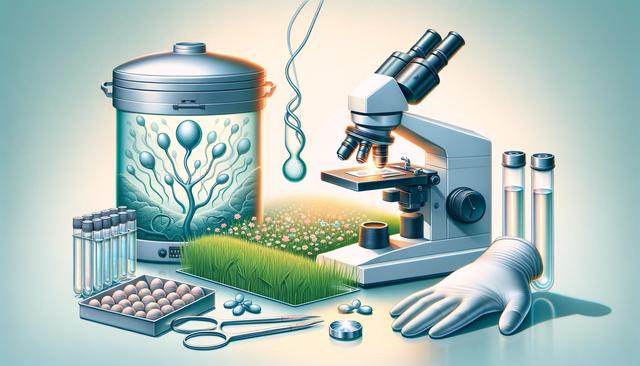The Process of Sperm Donation
Sperm donation is a comprehensive process involving various steps to ensure the safety and confidentiality of both donors and recipients. Initially, potential donors undergo rigorous screening procedures, which include medical and genetic testing to rule out any health conditions that could be passed on through donation. This process ensures that only healthy sperm is used, minimizing the risks for the recipient and potential offspring.
Donors also complete a detailed questionnaire to assess their medical history and lifestyle habits. This information is crucial not only for the screening process but also for providing recipients with a comprehensive profile. Once a donor is deemed eligible, they make regular visits to a sperm bank, where donations are collected. Each donation is then quarantined for a period to ensure no infectious diseases are present, adding an additional layer of safety for recipients.
Who Can Benefit from Sperm Donation?
Sperm donation provides an invaluable opportunity for various individuals and couples who face challenges in conceiving naturally. Single women who wish to become mothers, same-sex couples, and heterosexual couples dealing with male infertility can all benefit from sperm donation. By facilitating reproduction, it offers these recipients the chance to experience the joys of parenthood.
Sperm donation also plays a significant role in reproductive medicine by supporting assisted reproductive technologies such as in vitro fertilization (IVF) and intrauterine insemination (IUI). These methods, in combination with donor sperm, have helped many achieve successful pregnancies, highlighting the critical role of sperm donation in modern fertility treatments.
Confidentiality and Ethical Considerations
Confidentiality is a cornerstone of the sperm donation process. Donors and recipients are assured that their identities will be protected, allowing the process to be conducted with trust and integrity. While laws vary by country, most jurisdictions have strict regulations in place to safeguard the anonymity of both donors and recipients, or to govern situations where anonymity might be waived.
Ethical considerations are also paramount. The rights of donors, recipients, and resulting offspring are considered, ensuring that all parties are treated with respect and fairness. The ethical framework aims to balance the interests of all involved while promoting positive outcomes for children born as a result of sperm donation.
Impact on Donors and Recipients
Sperm donors not only contribute to the lives of those who cannot conceive naturally but also gain a sense of fulfillment knowing they have helped others achieve their dreams of having a family. For donors, the decision to donate is often driven by altruism, with many expressing satisfaction in knowing their donation can make a significant difference.
For recipients, sperm donation opens doors to parenthood that might otherwise remain closed. It provides hope and the possibility of starting or expanding families. This transformative impact underscores the profound role that sperm donation plays in the world of reproductive health.
The Future of Sperm Donation
As reproductive technologies continue to advance, the future of sperm donation looks promising. Innovations in genetic screening and storage methods are continually enhancing the safety and success rates of assisted reproductive technologies. Furthermore, societal attitudes are increasingly embracing diverse family structures, leading to more widespread acceptance and utilization of sperm donation as a viable option.
Ongoing research and development in the field are likely to bring about further improvements, ensuring that sperm donation remains a reliable and ethical option for individuals and couples seeking to build their families. The commitment to refining these processes ensures that sperm donation will continue to play a vital role in reproductive medicine for years to come.
Conclusion
Sperm donation is a crucial aspect of reproductive medicine that offers hope and opportunities to many individuals and couples facing fertility challenges. With rigorous screening processes, ethical considerations, and advancing technologies, sperm donation stands as a beacon of possibility for those yearning to experience parenthood. Its continued evolution and acceptance will undoubtedly ensure its lasting impact on the landscape of family creation.
